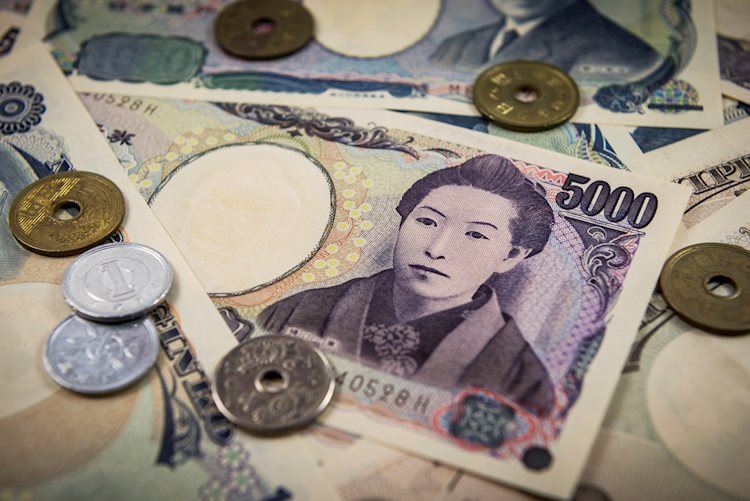- The Japanese Yen attracts buyers for the second successive day amid renewed intervention fears.
- Geopolitical tensions further benefit the safe-haven JPY and exert pressure on the USD/JPY pair.
- The BoJ rate hike uncertainty might cap gains for the JPY ahead of Japan’s snap general election.
The Japanese Yen (JPY) remains on the front foot against its American counterpart for the second successive day on Tuesday and drags the USD/JPY pair away from its highest level since August 16 touched the previous day. The overnight comments by Japanese officials revived intervention fears and turned out to be a key factor underpinning the JPY. This, along with the risk of a further escalation of geopolitical tensions in the Middle East, drives some haven flows towards the JPY.
That said, diminishing odds for another interest rate hike by the Bank of Japan (BoJ) in 2024 might hold back the JPY bulls from placing aggressive bets. Meanwhile, Friday’s upbeat US jobs report forced investors to scale back bets for another oversized interest rate cut by the Federal Reserve (Fed) in November, which allows the US Dollar (USD) to stand tall near a seven-week top. This, in turn, might continue to offer some support to the USD/JPY pair and limit any further slide.
Daily Digest Market Movers: Japanese Yen bulls might refrain from placing aggressive bets amid BoJ rate-hike uncertainty
- Japan’s Vice Finance Minister for International Affairs Atsushi Mimura warned against speculative moves in the FX market, fueling speculations that the government may intervene to support the Japanese Yen.
- Adding to this, Japan’s newly appointed Finance Minister Katsunobu Kato said the government would monitor how rapid currency moves could potentially impact the economy and would take action if necessary.
- Furthermore, fears that Middle East tensions could turn into a wider conflict, which drives haven flows towards the JPY and drags the USD/JPY pair away from its highest level since August 16 touched on Monday.
- In the latest developments, Lebanon’s Hezbollah fired rockets at Israel’s port city of Haifa and a military base near the central city of Tel Aviv, while Israel bombed a couple of buildings in the southern suburbs of Beirut.
- The recent comments by Japan’s Prime Minister Shigeru Ishiba, saying that the country is not in an environment for more rate increases, raised doubts over the Bank of Japan’s ability to tighten further in the coming months.
- This, along with the uncertainty over the Japanese general elections on October 27, might act as a headwind for the JPY and offer support to the USD/JPY pair amid a short-term bullish tone around the US Dollar.
- Against the backdrop of Federal Reserve Chair Jerome Powell’s hawkish remarks, the upbeat US jobs report dashed hopes for a more aggressive policy easing and kept the USD bulls elevated near a multi-week top.
- Traders now look forward to the release of the FOMC minutes on Wednesday and the key US inflation data – the consumer inflation figures and the Producer Price Index (PPI) on Thursday and Friday, respectively.
Technical Outlook: USD/JPY setup favors bulls and supports prospects for the emergence of dip-buying at lower levels
From a technical perspective, last week’s break above the 50-day Simple Moving Average (SMA), for the first time since mid-July, and the subsequent move beyond the 38.2% Fibonacci retracement level of the July-September downfall were seen as fresh triggers for bulls. Moreover, oscillators on the daily chart have been gaining positive traction and suggest that the path of least resistance for the USD/JPY pair is to the upside. Hence, any further slide might still be seen as a buying opportunity and is more likely to remain cushioned near the 147.00 mark, which should now act as a key pivotal point.
On the flip side, a sustained move back above the 148.00 mark might prompt some technical buying and lift the USD/JPY pair to the 148.70 resistance zone en route to the 149.00 round figure. Some follow-through buying beyond the weekly top, around the 149.10-149.15 region, will reaffirm the positive outlook and allow bulls to reclaim the 150.00 psychological mark.
Japanese Yen FAQs
The Japanese Yen (JPY) is one of the world’s most traded currencies. Its value is broadly determined by the performance of the Japanese economy, but more specifically by the Bank of Japan’s policy, the differential between Japanese and US bond yields, or risk sentiment among traders, among other factors.
One of the Bank of Japan’s mandates is currency control, so its moves are key for the Yen. The BoJ has directly intervened in currency markets sometimes, generally to lower the value of the Yen, although it refrains from doing it often due to political concerns of its main trading partners. The BoJ ultra-loose monetary policy between 2013 and 2024 caused the Yen to depreciate against its main currency peers due to an increasing policy divergence between the Bank of Japan and other main central banks. More recently, the gradually unwinding of this ultra-loose policy has given some support to the Yen.
Over the last decade, the BoJ’s stance of sticking to ultra-loose monetary policy has led to a widening policy divergence with other central banks, particularly with the US Federal Reserve. This supported a widening of the differential between the 10-year US and Japanese bonds, which favored the US Dollar against the Japanese Yen. The BoJ decision in 2024 to gradually abandon the ultra-loose policy, coupled with interest-rate cuts in other major central banks, is narrowing this differential.
The Japanese Yen is often seen as a safe-haven investment. This means that in times of market stress, investors are more likely to put their money in the Japanese currency due to its supposed reliability and stability. Turbulent times are likely to strengthen the Yen’s value against other currencies seen as more risky to invest in.
Read the full article here

